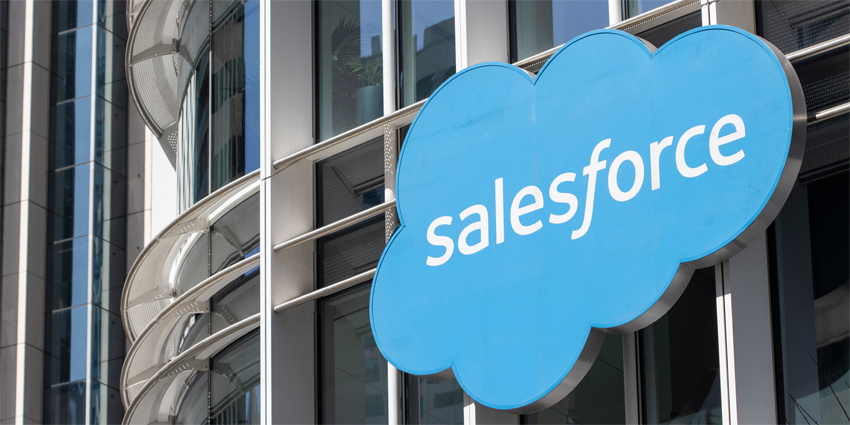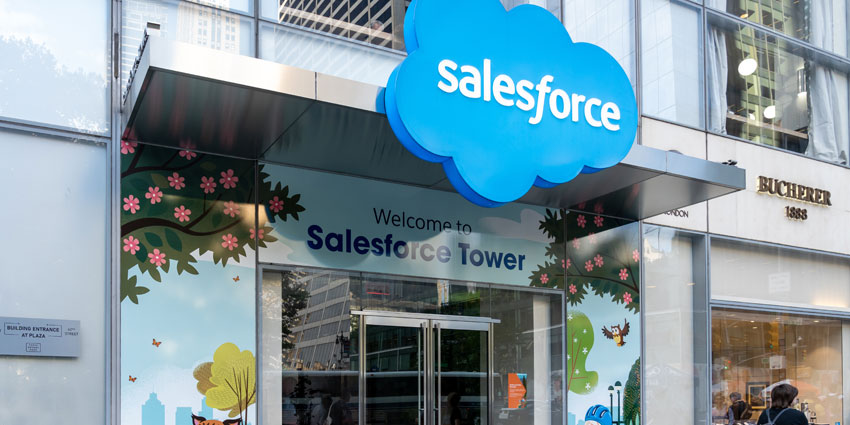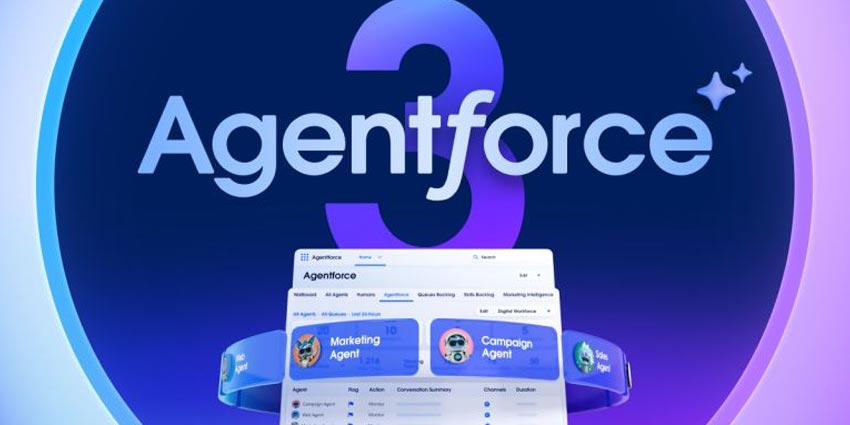What happens at Salesforce sometimes seems like a glorious accident, as if CEO Marc Benioff hops continuously in new directions that mostly pay off.
Yet, Dreamforce 2023 and now the acquisition of Airkit.ai have highlighted that all of those new directions, pivots, and acquisitions have been intentional – part of a master plan.
The Master Plan
On the Dreamforce stage three years ago, Marc Benioff said: “We can’t just be Salesforce anymore.”
Looking back, that foreshadowed his ambition to build an ecosystem – instead of just expanding out all of its CRM apps. Salesforce had to change.
As such, it started to rearchitect its platform and last year launched Data Cloud.
That move pre-empted the Einstein 1 Platform. After all, it could not have existed if Data Cloud did not exist first.
Now, with a central platform that houses all its apps, Salesforce has built an ecosystem that leverages their combined intelligence and connects them with a cross-function data fabric.
Aggregated and normalized data runs throughout this fabric, allowing businesses to use tools like Flow to automate workflows across these apps and customer-facing functions. These will better connect service, sales, and marketing.
All this is three years in the making. It is no happy accident.
Now, with its new Einstein 1 Copilot innovation, Salesforce takes further advantage of this platform architecture to provide a differentiated virtual assistant offering.
So far, rival Copilots have highlighted the functional application of generative AI (GenAI) – and how it can serve a service agent, seller, or marketeer.
Yet, Salesforce takes a more holistic approach. As Liz Miller, VP & Principal Analyst at Constellation Research – recently told CX Today:
What I wanted to stand up and cheer about was Salesforce’s ability to show how Copilot not only helps the individual but how it also helps that individual fit into a broader customer experience strategy.
For instance, consider how Einstein 1 Copilot auto-summarizes customer service interactions and offers various insights, including customer sentiment.
Businesses can then set up the workflows to pass that conversational data over to:
- Service Cloud to support the next agent that speaks to the customer.
- Sales Cloud to aid possible renewal activities with the customer.
- Marketing Cloud to understand what is driving positive and negative customer sentiment.
So, while rival vendors may offer similar solutions for individual functions at a lower price, these cross-function capabilities will differentiate Salesforce – and take years for others to recreate.
After all, API, microservices, and JSON will only take them so far.
As these rivals try to do so, Salesforce can increase its leadership with more targeted acquisitions.
Enter Airkit.ai
Airkit.ai further extends Salesforce’s differentiator of having a cross-function ecosystem.
The business brings a low-code/no-code bot-builder, implemented within many contact center and customer service environments.
Yet, within the Einstein 1 platform environment, it’s unlikely to stay only within the remit of Service Cloud. Instead, it may support sales use cases like automated enrollment and marketing use cases such as proactive outreach campaigns.
All the while, the conversational and engagement data that they generate will pass through Data Cloud and funnel across various parts of the Salesforce ecosystem.
However, the question stands: why Airkit.ai over all the low-code/no-code bot-building platforms?
After all, Einstein bots already exist, and Salesforce has many existing AI capabilities, having purchased over ten AI startups in 2016 alone.
Its compossibility is likely the answer. Indeed, it allows designers to define the self-service process they’d like and offers them the building blocks to “compose” it.
As such, customers don’t need to follow what the vendor has imagined. Instead, they can build their own workflows – potentially across various functions – to gain greater benefit from the platform.
That’s quite the value proposition, and one alluring enough to see Salesforce open up its wallet after a year where “profitability” has become its mantra.
Alongside this, Salesforce adds to its AI arsenal – bringing in additional talent in this arena.
Moreover, the CRM leader is very familiar with Airkit.ai’s leaders, as they previously rolled up their previous company “RelateIQ” in 2014.
In welcoming them back to the company, Marc Benioff is staying true to his pledge to bring back former employees and grow its headcount in AI.
Winning that AI race will prove critical for Salesforce to sustain its market lead – especially after it recently raised its prices for the first time in seven years.
The good news is that its strategy to do so appears promising and possibly market redefining.








